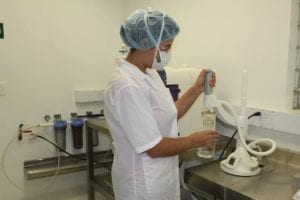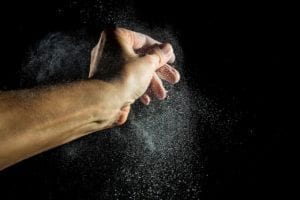Silicosis
What is silicosis?
Silicosis is an interstitial lung disease that occurs after one breathes in silica for an extended period of time. Scarring happens over the years, leading to pulmonary fibrosis.
What are the symptoms of silicosis?
Symptoms do not appear until one has been exposed to silica for numerous years. Early symptoms include shortness of breath, sputum, and a cough. As time passes, they will progress to symptoms similar to bronchitis: difficulty breathing, a persistent cough, weakness, night sweats, fever, leg swelling, fatigue, and discoloration of the lips.
It is important to seek treatment, as complications become more common as the condition progresses. Possible complications include lung cancer, kidney disease, tuberculosis, and chronic obstructive pulmonary disorder.
What causes silicosis?
Silicosis occurs after years of breathing in silica, which is a mineral present in many forms of rocks and soil. When it is breathed in, the lungs become inflamed. If people breathe it in for years, the lungs become permanently scarred.
How is silicosis diagnosed?
There is no one test to diagnose silicosis. Doctors will perform a physical exam and ask questions about one’s breathing and work history to see if there has been exposure to silica. Next, they will listen to the lungs and perform tests, such as imaging tests, sputum tests, biopsies, lung function tests, and bronchoscopies.
What are the treatments for silicosis?
There is no cure for silicosis; treatment aims to slow the progression and treat symptoms. Doctors will advise silicosis patients to stop smoking and stop their exposure to silica. Depending on severity, a physician will then make an individualized treatment plan. Treatment options include oxygen therapy, supplemental oxygen, using a bronchodilator, and pulmonary rehabilitation. If one’s case is severe, a lung transplant may be necessary.
To help manage silicosis, affected individuals can eat a well-balanced diet, maintain a healthy weight, remain active, prevent any infections, and remain vigilant if one does get infected.
Where can I find out more about silicosis?
Silicosis Articles


South African Compensation Program Begins for Workers Who Contracted Silicosis








